Lesson-6
My Childhood
By A.P.J. Abdul Kalam [an extract from Wings of Fire]
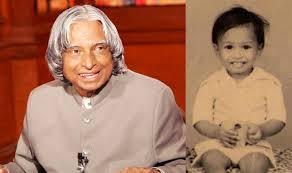
My Childhood Introduction
Abdul Kalam's biography is titled "Wings of Fire," and the chapter 'My Childhood' discusses A.P.J Abdul Kalam's childhood. He was both the President of India and a brilliant scientist. APJ discusses his upbringing, his parents, and his siblings. He tells us about his friends and the events that shaped his childhood.
My Childhood Summary
"My Childhood" is an extract from APJ Abdul Kalam's biography, "Wings of Fire." He was a great scientist as well as India's 14th President. In 1931, he was born in the Tamil Nadu island town of Rameswaram to a middle-class Muslim family.
His parents, teachers, and friends all had a big influence on him when he was a kid. His father, Jainulabdeen, was not a well-educated man, but he was generous and kind. He was not wealthy, but he provided Abdul and his siblings with a secure childhood. Abdul inherited his father's honesty and self-discipline, as well as his mother's faith in goodness and deep kindness.
Kalam earned his first money by assisting his cousin, Samsuddin, who distributed newspapers in Rameswaram. He had three close friends as a child: Ramanadha Sastry, Aravindam, and Sivaprakash. When he was in fifth grade, a new teacher told him not to sit in the front row with the upper caste Brahmin boys. As he approached the last row, Abdul noticed Ramanadha Sastry sobbing. This left an indelible impression on Abdul.
Sivasubramania Iyer, Abdul's science teacher, also had a big influence on him. He taught him the value of breaking down social barriers. Iyer invited him to dinner at his house. His wife refused to serve a Muslim boy food in her pure kitchen. Iyer served him his meal with his own hands and sat beside him to eat it. He convinced his wife to serve the meal with her own hands, and thus succeeded in changing her conservative attitude.
Abdul Kalam sought permission from his father to leave Rameswaram and study at the district headquarters in Ramanathapuram for higher education. Abdul, according to his father, had to travel a long distance in life, much like a seagull bird that flies long distances. He soothed APJ's hesitant mother by reciting Kahlil Gibran's poem 'Your children.' He stated that her children could not be ruled by her because they had their own ideas. They were not hers, but rather the result of life's desire for itself. He asked her to give them the freedom to act on their ideas.
My Childhood Lesson Explanation
I was born into a middle-class Tamil family in the island town of Rameswaram in the erstwhile Madras State.
- erstwhile: former
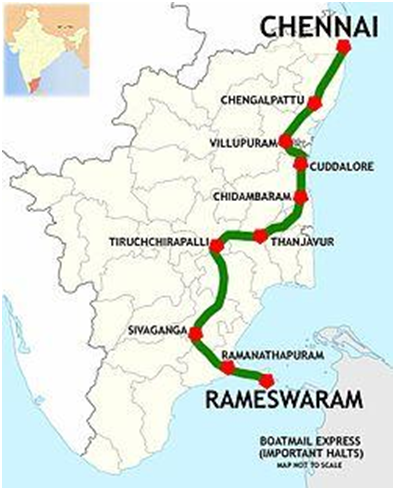
A.P.J Abdul Kalam was born into a middle-class Tamil family in Rameswaram, an island town in the state of Tamil Nadu in the Bay of Bengal. This state is now known as Tamil Nadu, but when he was born, it was known as Madras state.
My father, Jainulabdeen, had neither much formal education nor much wealth; despite these disadvantages, he possessed great innate wisdom and a true generosity of spirit.
- innate: inborn; (a quality or feeling) in one’s nature
- generosity of spirit: his soul sought to help others who were needy
Jainulabdeen Abdul Kalam was APJ Abdul Kalam's father's name. APJ says that his father was not very wealthy, did not have wealth, and was not highly educated, but despite these disadvantages, he possessed some other characteristics: he was naturally very wise and generous.
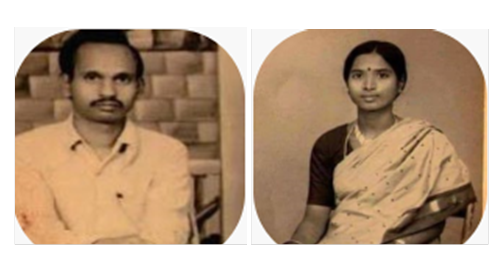
He had an ideal helpmate in my mother, Ashiamma.
Ashiamma was APJ's mother's name. She used to lend a hand to his father. She was a huge help and support to him.
I do not recall the exact number of people she fed every day, but I am quite certain that far more outsiders ate with us than all the members of our own family put together.
APJ's mother was also generous and caring. She used to feed a large number of people every day. She fed more people from outside their family than the total number of members in their family.
I was one of many children — a short boy with rather undistinguished looks, born to tall and handsome parents.
- undistinguished: ordinary or common
Abdul Kalam had many siblings, and he describes himself as having small height and average looks, with no distinguishing features. On the contrary, his parents were both tall and attractive. They were attractive. APJ was not born with their physical characteristics.
We lived in our ancestral house, which was built in the middle of the nineteenth century. It was a fairly large pucca house, made of limestone and brick, on the Mosque Street in Rameswaram.
- Pucca House means a house made of bricks, cement and limestone.
The ancestral home of APJ Abdul Kalam was quite old. It was constructed in the nineteenth century. It was a pucca house constructed of bricks and limestone. It is located on Rameswaram's Mosque Street.
My austere father used to avoid all inessential comforts and luxuries. However, all necessities were provided for, in terms of food, medicine or clothes. In fact, I would say mine was a very secure childhood, both materially and emotionally.
- austere: simple, strict and severe
- secure: safe
- Materially means in terms of things like clothes food, medicine
- emotionally means in terms of love and affection.
APJ's father was straightforward, but strict. He desired to live a simple life, and he taught his children not to waste money on unnecessary spending. APJ says that his father used to avoid unnecessary comforts and luxuries. He provided them with everything they needed, including food, clothing, and medicines. APJ says that his parents met all of his needs, whether they were material or in the form of their love and affection. This demonstrates that he possesses the quality of gratitude. APJ is grateful to his parents for everything they have done for him.
The Second World War broke out in 1939, when I was eight years old.
When the Second World War broke out in 1939, APJ was eight years old. As a result, we can conclude that he was born in 1931.
For reasons I have never been able to understand, a sudden demand for tamarind seeds erupted in the market. I used to collect the seeds and sell them to a provision shop on Mosque Street. A day’s collection would fetch me the princely sum of one anna.
- tamarind seeds: kind of fruit
- princely sum: generous amount (here, ironic)
- anna: an old Indian coin, worth about six paise
Market demand for tamarind seeds has increased. APJ used to collect tamarind seeds and sell them to a provision shop on Mosque Street. He would only be paid one anna, which is equal to six pence. When he refers to it as a "princely sum" – something very large and valuable – he is being ironic because the amount was very small. This one anna was worth a lot of money to him at the time.
My brother-in-law Jallaluddin would tell me stories about the War which I would later attempt to trace in the headlines in Dinamani.
- Dinamani: a tamil daily newspaper.
Jalaluddin, APJ Abdul Kalam's brother–in–law, used to tell him stories about the ongoing World War. Later, APJ would read the newspaper 'Dinamani' and look for news about the same stories.
Our area, being isolated, was completely unaffected by the War. But soon India was forced to join the Allied Forces and something like a state of emergency was declared.
- isolated: Lonely, cut-off
- Allied Forces: the armies of U.K., U.S.A. and Russia during the Second World War
Rameswaram was a small island town located far from the mainland. As a result, it was initially unaffected by World War II. However, after some time, India was forced to enter the war and join the Allied Forces. The country was then declared to be in a state of emergency. (During an emergency, the President's rule is enforced throughout the country. It's similar to a curfew in the country. Many of the people's privileges are being withdrawn.)
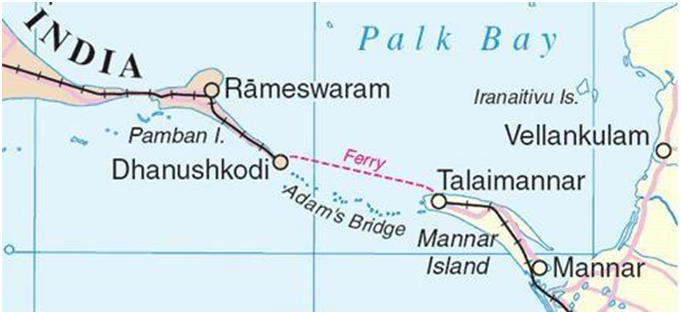
The first casualty came in the form of the suspension of the train halt at Rameswaram station. The newspapers now had to be bundled and thrown out from the moving train on the Rameswaram Road between Rameswaram and Dhanuskodi.
- casualty: loss
- suspension: end stop
The cancellation of the train stoppage at the Rameswaram station was the first impact of World War II on the people of Rameswaram. Previously, the train from India would stop at Rameswaram station before continuing on to Dhanushkodi. However, the halt has now been cancelled, and the train has proceeded from India to Dhanushkodi without stopping at Rameswaram. The newspaper bundle, which was bound for Rameswaram, was thrown out of the moving train as it reached Rameshwaram Road.
That forced my cousin Samsuddin, who distributed newspapers in Rameswaram, to look for a helping hand to catch the bundles and, as if naturally, I filled the slot.
Samsuddin helped me earn my first wages.
- filled the slot – fit into a place easily
Samsuddin, APJ Abdul Kalam's cousin, used to distribute newspapers in Rameswaram. He needed someone to assist him in catching the train after the train stoppage was cancelled and the newspaper bundle was thrown out of the moving train. Samsuddin was assisted by APJ in catching the bundle and distributing the newspapers. In exchange, Samsuddin paid him a salary, which was APJ's first income.
Half a century later, I can still feel the surge of pride in earning my own money for the first time.
- pride: sudden increase in the feeling of satisfaction derived from one’s own achievements.
- Half a century later means after a period of 50 years.
This occurrence occurred 50 years ago. He could be satisfied and proud of himself even now, i.e. when he wrote the book. APJ says that whenever someone earns his own money through hard work, he feels the same way.
Every child is born, with some inherited characteristics, into a specific socio-economic and emotional environment, and trained in certain ways by figures of authority. I inherited honesty and self-discipline from my father; from my mother, I inherited faith in goodness and deep kindness and so did my three brothers and sister.
- figures of authority: A person who had authority over another person; a person who has the power to give orders or make decisions.
- Inherited means a characteristic, or a quality which you have got from your parents or ancestors.
- socio-economic means in terms of money
A child's parents are the figure of authority, and his teacher—a person who has authority over the child—is the next figure of authority. APJ is implying that when a child is born, he inherits certain characteristics from his family's elders. These are determined by the family's social status and the environment at home. He inherited honesty and self-discipline from his father, and faith in goodness and deep kindness from his mother. His siblings inherited these characteristics from their parents as well.
I had three close friends in my childhood — Ramanadha Sastry, Aravindan and Sivaprakasan. All these boys were from orthodox Hindu Brahmin families.
- orthodox: strict
During his childhood, APJ had three best friends. Ramanadha Sastry, Aravindan, and Sivaprakasan are their names. They were all born into strict Hindu Brahmin families and were true followers of their religion.
As children, none of us ever felt any difference amongst ourselves because of our religious differences and upbringing. In fact, Ramanadha Sastry was the son of Pakshi Lakshmana Sastry, the high priest of the Rameswaram temple. Later, he took over the priesthood of the Rameswaram temple from his father; Aravindan went into the business of arranging transport for visiting pilgrims; and Sivaprakasan became a catering contractor for the Southern Railways.
Because APJ was born into a Muslim family, he says that as a child, he and his siblings were so close that they never felt they belonged to different religions. Religion was not a barrier to their friendship. The Rameswaram temple is a well-known landmark in Rameswaram. Ramanadha Sastry, APJ's best friend, was the son of Pakshi Lakshmana Sastry, the temple's priest. When these three friends grew up, Ramanadha Sastry became a priest of the Rameswaram temple, Arvindan started a business transporting pilgrims to and from the Rameswaram temple, and Sivaprakasan became a catering contractor for the southern railway- he was in charge of railway catering.
During the annual Shri Seetha Rama Kalyanam ceremony, our family used to arrange boats with a special platform for carrying idols of the Lord from the temple to the marriage site, situated in the middle of the pond called Rama Tirtha which was near our house.
- Rama Kalyanam ceremony is known as Kalyanotsava. It means marriage festival. In South India, marriage is known as Kalyanam. So, Lord Ram and Seetha’s marriage is called Seetha Rama Kalyanam ceremony. It is the ceremony of the depiction of the marriage between Seetha and Rama.
APJ's family used to attend the Shri Seetha Rama Kalyanam ceremony whenever it was held. They were in charge of arranging the boats for it. They used to build a special platform on the boats to transport the statues of Ram and Seetha from the temple to the marriage site, which was in the middle of a pond called Rama Tirtha. This pond was close to APJ's home. He never thought there was any difference between Hindus and Muslims when he was growing up because they both participated in Hindu festivals wholeheartedly.
Events from the Ramayana and from the life of the Prophet were the bedtime stories my mother and grandmother would tell the children in our family.
APJ says that their mother and grandmother read them bedtime stories from the Ramayana and the life of the Prophet. As a result, they listened to stories about Hindu and Muslim Gods. There was no discrimination based on religion.
One day when I was in the fifth standard at the Rameswaram Elementary School, a new teacher came to our class. I used to wear a cap that marked me as a Muslim, and I always sat in the front row next to Ramanadha Sastry, who wore the sacred thread.
Because APJ Abdul Kalam was born into a Muslim family, he wore a cap on his head that identified him as a Muslim. His friend Ramanadha Sastry, the son of the Rameswaram temple priest, belonged to a Hindu Brahmin family and wore the sacred thread worn by Brahmins. When these children were in fifth grade, a new teacher was assigned to them. APJ Abdul Kalam recalls an incident that occurred at the time –
The new teacher could not stomach a Hindu priest’s son sitting with a Muslim boy. In accordance with our social ranking as the new teacher saw it, I was asked to go and sit on the backbench. I felt very sad, and so did Ramanadha Sastry. He looked utterly downcast as I shifted to my seat in the last row. The image of him weeping when I shifted to the last row left a lasting impression on me.
- could not stomach: could not tolerate
- downcast: sad or depressed
This new teacher couldn't tolerate it when a Hindu priest's son sat next to a Muslim boy. He directed APJ to the last bench because he belonged to a lower social class. Both of the kids were in a bad mood. Ramanadha felt terrible when APJ switched seats and sat on the last bench. APJ recalls the image of his friend Ramanadha sobbing. Kalam was left with a lasting impression of his friends' feelings for him.
After school, we went home and told our respective parents about the incident. Lakshmana Sastry summoned the teacher, and in our presence, told the teacher that he should not spread the poison of social inequality and communal intolerance in the minds of innocent children. He bluntly asked the teacher to either apologize or quit the school and the island. Not only did the teacher regret his behavior, but the strong sense of conviction Lakshmana Sastry conveyed ultimately reformed this young teacher.
- summoned: called
- bluntly: speaking in a direct and honest way, even if this offends or upsets people.
- apologize: seek pardon
- quit: to leave
- conviction: a strong opinion or belief
- convey: communicated
Both children returned home and informed their parents about the incident, and Ramanadha's father, Lakshmana Sastry, summoned the new teacher and scolded him. He warned him not to destroy the children's friendship by instilling venomous caste and religious discrimination in their young minds. Lakshmana Sastry was certain of himself. He told the teacher, "Either you apologise for what you've done, or you leave the school and Rameswaram town." The teacher apologised for his mistake, and Laskshmana Sastry's views on religion and caste shifted as a result of his determination.
On the whole, the small society of Rameswaram was very rigid in terms of the segregation of different social groups. However, my science teacher Sivasubramania Iyer, though an orthodox Brahmin with a very conservative wife, was something of a rebel. He did his best to break social barriers so that people from varying backgrounds could mingle easily. He used to spend hours with me and would say, “Kalam, I want you to develop so that you are on par with the highly educated people of the big cities.”
- rigid: strict
- segregation: separation
- orthodox: one who follows the religion strictly
- conservative: traditional
- rebel: in opposition
- Mingle: interact with each other.
- on par: at the same level
In Rameswaram, society was divided into four groups: Brahmins, Kshatriyas, Vaishyas, and Shudras. Sivasubramania Iyer, Abdul Kalam's Science teacher, was a religious person, an orthodox Brahmin, but he was a rebellious type of person. He did not believe in caste-based discrimination. He worked tirelessly to break down these social barriers. He desired that people of different castes interact with one another. He urged APJ Abdul Kalam to work hard so that he could compete with the highly educated people who lived in big cities.
One day, he invited me to his home for a meal. His wife was horrified at the idea of a Muslim boy being invited to dine in her ritually pure kitchen. She refused to serve me in her kitchen. Sivasubramania Iyer was not perturbed, nor did he get angry with his wife, but instead, served me with his own hands and sat down beside me to eat his meal. His wife watched us from behind the kitchen door. I wondered whether she had observed any difference in the way I ate rice, drank water or cleaned the floor after the meal.
- ritually pure: kept protected from all outside influences for the observances of religion
- perturbed: upset
The wife of Sivasubramania Iyer came from a traditional and orthodox Brahmin family. She strictly adhered to the religion, and no one from a lesser religion was permitted to enter the kitchen in order to keep it 'pure.' When Sivasubramania Iyer called APJ Abdul Kalam for dinner at his home, his wife feared that a boy from a Muslim family would make her kitchen impure. She refused to serve him food in her kitchen. Sivasubramania Iyer was neither upset nor angry. He himself served food to APJ and sat down beside him to eat. While APJ was eating, his wife stood beside the kitchen door and looked at him. APJ says that she did not notice any difference in the way he ate his food, drank his water, or cleaned the floor after the meal. He wants to emphasise that religion is irrelevant because it has no effect on how a person eats food.
When I was leaving his house, Sivasubramania Iyer’s invited me to join him for dinner again the next weekend. Observing my he Seethation, he told me not to get upset, saying,
“Once you decide to change the system, such problems have to be confronted.”.
- he Seethation: doubt, delay
- confronted: faced, tackled
As APJ was about to leave Sivasubramania Iyer's house, he invited him to dinner once more. Sivasubramania Iyer asked APJ Abdul Kalam not to be upset when he found he was the Seethant. He went on to say that if he decided to change the system, to go against society's norms, he had to be strong and brave enough to confront the situation.
When I visited his house the next week, Sivasubramania Iyer’s wife took me inside her kitchen and served me food with her own hands
The next week, when he went to Sivasubramania Iyer's house for dinner, his wife made him sit in the kitchen and served him food with her own hands. This is the change that occurred.
Then the Second World War was over and India’s freedom was imminent. “Indians will build their own India,” declared Gandhiji. The whole country was filled with an unprecedented optimism.
- imminent: about to happen
- Unprecedented: never done or known before.
- Optimism: hope, cheer
When the Second World War ended in 1945, India was on the verge of achieving independence, which occurred in 1947. MK Gandhi, also known as the "Father of the Nation," was a pivotal figure in India's liberation struggle. He stated that Indians would construct their own India. The entire country was filled with optimism and joy. Everyone was experiencing a sensation they had never felt before. Everyone was hoping that now they would be able to go home.
I asked my father for permission to leave Rameswaram and study at the district headquarters in Ramanathapuram. He told me as if thinking aloud, “Abul ! I know you have to go away to grow. Does the seagull not fly across the sun, alone and without a nest?”
APJ requested permission from his father to attend higher education in Ramanathapuram, the district headquarters. (Birds are seagulls.) In response, his father stated that he knew APJ needed to leave so that he could move on in life. He used the example of a seagull flying away alone in the sky without a nest. It means it doesn't have its own home and is constantly flying from one place to another.
He quoted Khalil Gibran to my he Seethant mother, “Your children are not your children. They are the sons and daughters of Life’s longing for itself. They come through you but not from you. You may give them your love but not your thoughts. For they have their own thoughts.”
- Longing: desire
- For they have their own thoughts: Excerpt from “Your children’ – Poem by Khalil Gibran.
When APJ's mother learned that he was about to leave home to pursue higher education in Ramanathapuram, she became upset. APJ's father tried to calm her down by reading her a few lines from Khalil Gibran's famous poem "Your Children." Your children, he said, are not your children; they are the children of life. Don't think you can rule over your children. They are the result of life's desire to exist for itself. They have their own ideas. He asked her to give them the freedom to pursue their dreams.
About the Author
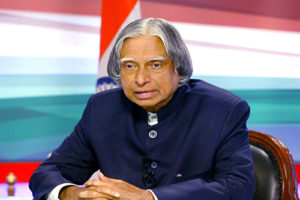
Avul Pakir Jainulabdeen Abdul Kalam was the eleventh President of India, serving from 2002 to 2007. He grew up in Rameswaram, Tamil Nadu, where he studied physics and aerospace engineering.

 ACERISE INDIA
ACERISE INDIA
